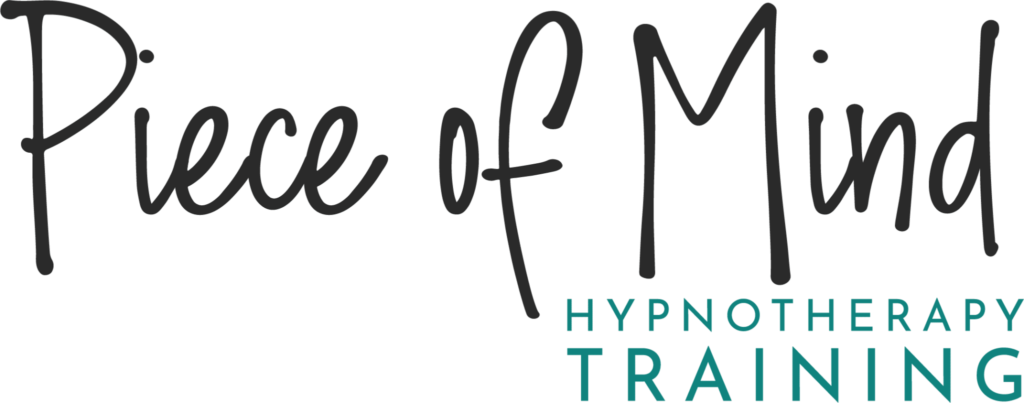
If you’re considering hypnotherapy training, one of your biggest concerns might be: Is this course accredited?
Accreditation can feel like a stamp of legitimacy, but what does it actually mean in the hypnotherapy industry? And is an accredited course always the best choice?
In this guide, we’ll break down everything you need to know about accredited and non-accredited hypnotherapy courses, helping you make an informed decision about your training.
What Does Accreditation Actually Mean?
Accreditation in hypnotherapy is different from fields like medicine or law. In the UK, hypnotherapy isn’t legally regulated, which means there’s no single governing body that oversees all training courses. Instead, private organisations offer accreditation to ensure certain standards are met.
Who Accredits Hypnotherapy Courses?
A hypnotherapy course can be accredited by various professional organisations, including:
Hypnotherapy Associations – such as the General Hypnotherapy Register (GHR) or the Complementary & Natural Healthcare Council (CNHC).
Training Councils – independent bodies that verify teaching standards and practical application.
External Assessment Bodies – organisations that assess training providers to ensure their courses meet recognised educational and ethical guidelines.
It’s important to understand that accreditation is not a legal requirement to practice hypnotherapy. However, choosing an accredited course can make it easier to:
✔ Gain professional insurance.
✔ Join hypnotherapy directories and professional bodies.
✔ Provide reassurance to potential clients that your training meets certain standards.
Is Accreditation Required to Practise Hypnotherapy?
No, accreditation is not a requirement to become a practising hypnotherapist in the UK. Since hypnotherapy is an unregulated profession, you do not need to hold an accredited qualification to work with clients.
Many successful hypnotherapists have trained through non-accredited programs that provided them with excellent skills and knowledge. The key factors that determine your success in hypnotherapy are:
✔ Quality of Training – Does the course offer real-world experience, practical application, and live practice sessions?
✔ Ongoing Support & Mentorship – Will the trainers continue to provide guidance after you complete your training?
✔ Recognised Certification – Can you obtain professional insurance and join relevant professional organisations with your qualification?
Accreditation alone does not guarantee the best training—it simply means the course meets specific criteria set by an external organisation. Many outstanding training courses may choose not to be accredited for various reasons, such as maintaining flexibility in teaching methods or offering a curriculum beyond traditional accreditation requirements.
Accredited vs. Non-Accredited Hypnotherapy Courses: Pros & Cons
Pros of Accredited Hypnotherapy Courses
✅ Easier to Gain Insurance – Some insurance providers prefer accredited training.
✅ Professional Recognition – Can help when joining professional bodies.
✅ Standardised Curriculum – Ensures certain learning outcomes are met.
Cons of Accredited Hypnotherapy Courses
❌ Not Always Focused on Practical Application – Some courses prioritise theory over hands-on experience.
❌ More Expensive – Accreditation fees can increase training costs.
❌ Rigid Curriculum – Some accredited courses may not cover newer or more advanced techniques.
Pros of Non-Accredited Hypnotherapy Courses
✅ Often More Practical – Many focus on real-world application and hands-on learning.
✅ More Affordable – No accreditation fees often mean lower costs.
✅ Freedom to Innovate – Trainers can teach advanced or alternative techniques not covered in accredited programs.
Cons of Non-Accredited Hypnotherapy Courses
❌ May Require Extra Effort to Get Insurance – Some insurers prefer accredited qualifications.
❌ Potential Recognition Issues – Some professional directories may not accept non-accredited training.
What Should You Look for in a Hypnotherapy Training Course?
Whether you choose an accredited or non-accredited course, the quality of training should be your top priority. When researching hypnotherapy courses, consider the following:
1. Practical Training & Real-World Application
Does the course provide real, hands-on practice? Hypnotherapy is a skill that requires practical experience, so make sure the training includes live practice sessions, client case studies, and supervised training.
2. Comprehensive Curriculum
A strong hypnotherapy course should cover:
How hypnosis works and the science behind it
Techniques for different client issues (e.g., anxiety, confidence, habits)
Ethics and professional conduct
Client assessment and session structuring
How to set up and grow a hypnotherapy practice
3. Post-Training Support & Mentorship
A good hypnotherapy course should offer ongoing support after you graduate. Look for courses that provide: ✔ Access to a mentor or supervisor ✔ A community of fellow students and practitioners ✔ Continued learning opportunities (e.g., workshops, refresher courses)
4. Recognition & Insurance Eligibility
Even if a course isn’t accredited, check if the qualification is recognised by professional insurers. Some non-accredited courses still provide industry-recognised certifications that allow you to gain professional indemnity insurance.
Final Thoughts: Should You Only Choose Accredited Hypnotherapy Training?
If your goal is to become a confident and effective hypnotherapist, the structure and quality of the training matter more than accreditation alone.
Many of the best hypnotherapists trained through non-accredited courses that prioritised hands-on experience, real-world application, and client-focused techniques.
Instead of just looking for accreditation, ask yourself:
✔ Does this course give me practical skills to work with real clients?
✔ Will I have post-training support and mentorship?
✔ Can I gain professional insurance with this qualification?
✔ Is the training designed to help me succeed as a hypnotherapist?
If the answer to these is yes, then you’re likely choosing a course that will genuinely prepare you for a successful career—whether it’s accredited or not.
Want to Train as a Hypnotherapist?
If you’re serious about learning hypnotherapy and want training that focuses on real-world skills, practical application, and confidence-building, we’d love to chat.
📞 Book a free consultation today and let’s discuss whether our hypnotherapy course is the right fit for you.
